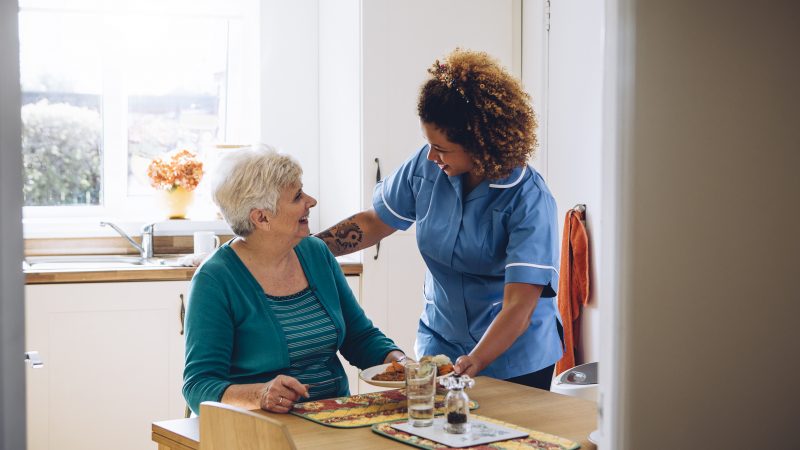
As we approach the winter and start to see a concerning rise in the number of coronavirus cases in some local areas, there has never been a more important time for the government to look at how some of the most vulnerable in our society have been impacted by the pandemic and how best they can be supported going forward.
As chair of the all-party parliamentary group (APPG) on dementia, I have been particularly concerned about the effect of the pandemic on people living with dementia and their families. Before the summer, our APPG held a roundtable and heard first-hand from people affected by dementia how the pandemic has affected their lives. We heard how sudden changes to people’s routines had caused great distress to those with dementia, or even worsened their condition. We also heard how the stopping of care home visits was causing real pain to families.
As chair of the group, I’m proud to work closely with Alzheimer’s Society. The charity is publishing a report today on how people affected by dementia have experienced coronavirus. It finds that those with dementia have been among the hardest hit by the coronavirus pandemic in the UK. It also provides overwhelming evidence that the virus and the effects of the pandemic have had a devastating impact on many of the 850,000 people in the UK with dementia, whether they live in the community or in a care home.
The government’s response to the virus for care home residents has been inadequate and piecemeal at best. With the majority of the care home residents having some form of dementia, the lack of personal protective equipment, testing and other protections have left the population extremely vulnerable and has no doubt led to the hugely disproportionate impact the virus has had on people with dementia. There is no identified clinical vulnerability to the virus for people with dementia, yet as things stand more than a quarter of all Covid-19 deaths – over 14,000 – have been among people with dementia.
Dementia can be a cruel disease that affects people in many different ways. For many with dementia, their family and friends play a significant role in their care, whether through interpreting needs or providing personal care. Removing their access to care homes has meant the removal of vital care. As an MP, it has been truly heartbreaking to hear from constituents in Oldham who have been prevented from visiting loved ones with dementia. It’s imperative that the government gives family and friends access to PPE and testing so that they, and care home staff, have confidence that they can safely visit their relatives in care homes. The government must also provide essential care and support for people with dementia living in the community.
The impact of the pandemic doesn’t just relate to the virus itself, but the impact of the associated restrictions. We already know that people with dementia are more likely to live with depression, which will only have been exacerbated by the loneliness and isolation caused by lockdown measures. Almost half of people with dementia say the lockdown has had a negative impact on their mental health.
It’s not just the people with dementia themselves who have been affected by the pandemic – the crisis has also hit family carers and professional carers hard. We know that there is an army of unpaid carers, who are now struggling to care round the clock for their loved ones, exhausted and ‘burnt out’ with nowhere else to turn. Alzheimer’s Society has estimated that family and friends have provided an extra 92 million hours of unpaid care throughout the pandemic.
I have been working with organisations like Alzheimer’s Society for some time now, calling for the much-needed reform to our social care system. Coronavirus has laid bare the dire state of social care for all to see. The need for change is clear and urgent: the government must bring forward plans for social care reform in early 2021.




More from LabourList
MPs, union leaders and organisations react to ‘bruising’ Gorton and Denton result
A gory night for Labour
‘SEND reforms are a crucial test of the opportunity mission’